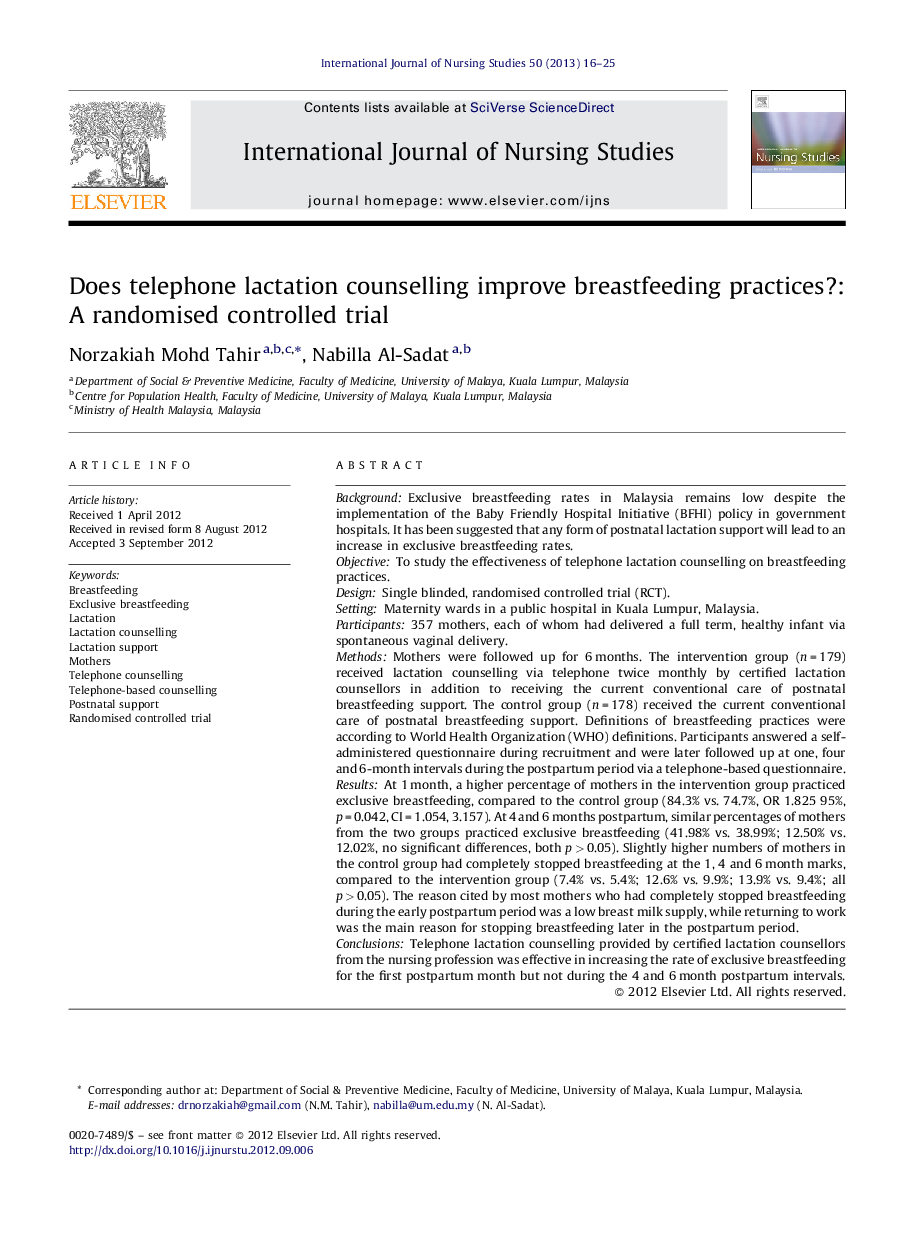| کد مقاله | کد نشریه | سال انتشار | مقاله انگلیسی | نسخه تمام متن |
|---|---|---|---|---|
| 1076401 | 1486552 | 2013 | 10 صفحه PDF | دانلود رایگان |

BackgroundExclusive breastfeeding rates in Malaysia remains low despite the implementation of the Baby Friendly Hospital Initiative (BFHI) policy in government hospitals. It has been suggested that any form of postnatal lactation support will lead to an increase in exclusive breastfeeding rates.ObjectiveTo study the effectiveness of telephone lactation counselling on breastfeeding practices.DesignSingle blinded, randomised controlled trial (RCT).SettingMaternity wards in a public hospital in Kuala Lumpur, Malaysia.Participants357 mothers, each of whom had delivered a full term, healthy infant via spontaneous vaginal delivery.MethodsMothers were followed up for 6 months. The intervention group (n = 179) received lactation counselling via telephone twice monthly by certified lactation counsellors in addition to receiving the current conventional care of postnatal breastfeeding support. The control group (n = 178) received the current conventional care of postnatal breastfeeding support. Definitions of breastfeeding practices were according to World Health Organization (WHO) definitions. Participants answered a self-administered questionnaire during recruitment and were later followed up at one, four and 6-month intervals during the postpartum period via a telephone-based questionnaire.ResultsAt 1 month, a higher percentage of mothers in the intervention group practiced exclusive breastfeeding, compared to the control group (84.3% vs. 74.7%, OR 1.825 95%, p = 0.042, CI = 1.054, 3.157). At 4 and 6 months postpartum, similar percentages of mothers from the two groups practiced exclusive breastfeeding (41.98% vs. 38.99%; 12.50% vs. 12.02%, no significant differences, both p > 0.05). Slightly higher numbers of mothers in the control group had completely stopped breastfeeding at the 1, 4 and 6 month marks, compared to the intervention group (7.4% vs. 5.4%; 12.6% vs. 9.9%; 13.9% vs. 9.4%; all p > 0.05). The reason cited by most mothers who had completely stopped breastfeeding during the early postpartum period was a low breast milk supply, while returning to work was the main reason for stopping breastfeeding later in the postpartum period.ConclusionsTelephone lactation counselling provided by certified lactation counsellors from the nursing profession was effective in increasing the rate of exclusive breastfeeding for the first postpartum month but not during the 4 and 6 month postpartum intervals.
Journal: International Journal of Nursing Studies - Volume 50, Issue 1, January 2013, Pages 16–25